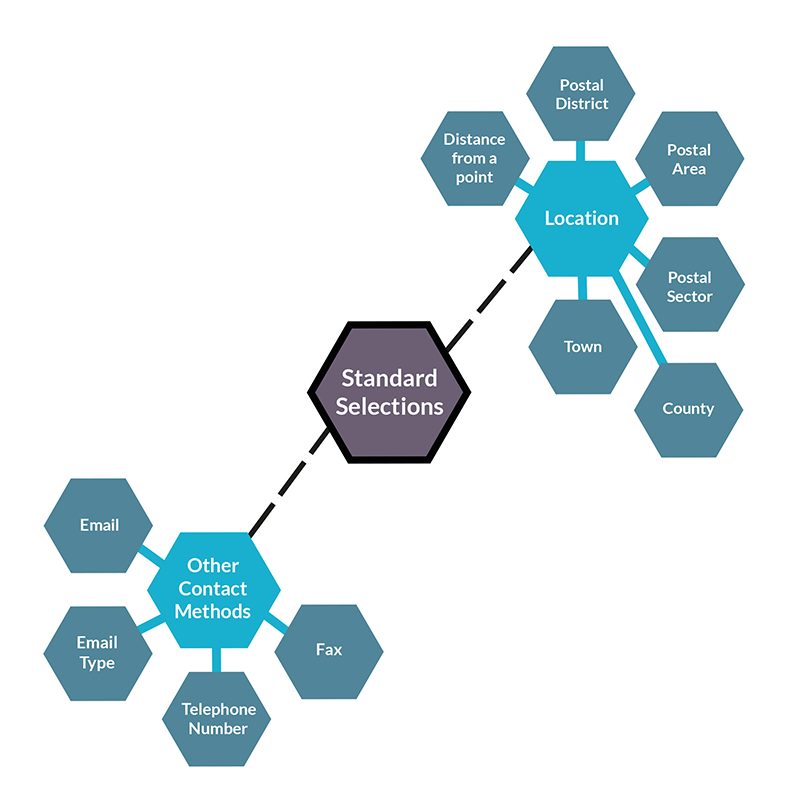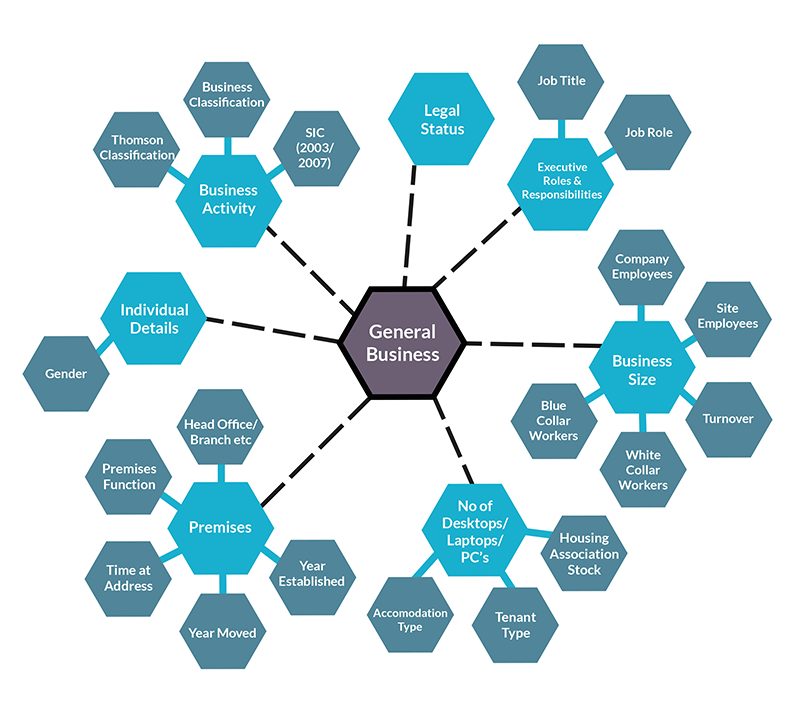
Knowing where to start when targeting other businesses with your products, services or solutions can be tricky.
Having a firm idea in your mind about who you want to target is a good start. This could be based on the ‘typical’ company that you transact with, or a wider pool of other businesses who you think would be interested in you and should be learning more about your company.
But have you thought about how you are actually going to reach these organisations? And here we’re not talking about the channel (such as email, phone, direct mail and SMS) but how you’re physically going to reach them. How do you get that well planned email received without an email address? How do you make the initial phone call without a phone number?
One option is purchasing a list of businesses – which you can then target. However, when purchasing a business list you may assume the solution is to cast your net wide – buying in high volume data numbers to yield high volume enquiries. But it’s not always a numbers game. It’s about being smart in your targeting through intelligent data filtering, ensuring you’re targeting those who are most likely to be interested in you.
Succinct targeting and filtering may result in a smaller pool to target, but don’t panic – this niche pool should be more receptive to your business. This gives you a better chance of success, reduces wastage and leaves you and spending less time on businesses who have no interest in you.
However, you can only apply smart filtering if the business list you have purchased has the breadth of options. You may find some ‘off-the-shelf’ lists are just too basic, containing limited contact information such as email addresses, with no further insight or intelligence to help you.
Instead you need to be looking for an organisation who can run tailored data searches for you, based on who you want to target.
The first step towards successful B2B targeting through tailored data for getting your standard data selections accurate:

Once standard selections are set you can add further filters to ensure you reach the right businesses.
It’s vital you’re aware of all filtering options available from your data company as this is how you’ll be reaching the right people; not the wrong ones. These additional filters are how you start to become niche in targeting.
Make sure you take time to really consider what filters will be effective in working for your business.
Additional filters classified as ‘general business’ should include:

You may be buying data on a single-use licence, so if you’ve purchased an incorrect data list for your business it will be wasted. But this is where your data company should be adding value through knowledge and experience. Don’t be afraid to ask questions, get additional filters added to your standard selections to see the data counts you get back.
Also have an open mind; you may have a very strong idea on who will want to hear from your business, but take feedback from your data company. This is their area of expertise. They may have new filter suggestions which could make all the difference to the chances of success of your B2B campaign.
Finally ensure you’re buying data which will work for your business; don’t always think that a high data volume with basic information will yield high returns. You need to understand who you are contacting to avoid sending your message to the wrong people. MarketingFile hold data on 5 million UK business decision makers, with 53 data selections available; think what your business could achieve if you harnessed that potential correctly.






